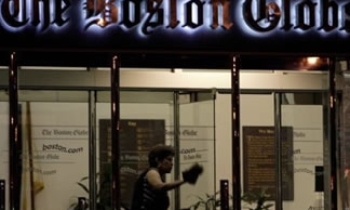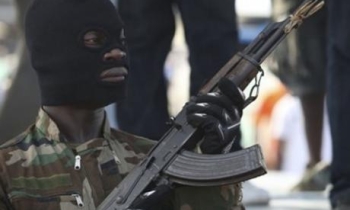In pressing his indictment of I. Lewis Libby Jr., the special prosecutor is pitting three prominent journalists against their former source, a strategy that experts in law and journalism say has rarely been used or tested.
It is all but unheard of for reporters to turn publicly on their sources or for prosecutors to succeed in conscripting members of a profession that prizes its independence.
Yet Mr. Libby's trial on perjury and obstruction charges will largely turn on whether jurors are more inclined to believe a government official who played a critical role in devising the justifications for the Iraq war or members of a profession whose own credibility has been under assault.
"We don't have much of a track record," said Jeffrey H. Smith, a former general counsel of the Central Intelligence Agency, "because journalists so rarely testify."
The three reporters all initially resisted subpoenas for their testimony, hoping to avoid not only testifying before the grand jury but also having to appear as a prosecution witness at trial. Such challenges have often been successful in the past. But all of them lost, and ultimately relented, saying that Mr. Libby had granted them permission to testify about confidential conversations.
"This is exactly the thing," said Jane Kirtley, a professor of media ethics and law at the University of Minnesota, "that journalists fear most - that they will become an investigative arm of the government and be forced to testify against the sources they've cultivated." While the special prosecutor, Patrick J. Fitzgerald, is all but certain to call at least some of the reporters as witnesses, whether they will be judged credible is an open question.
Relying on the journalists - Tim Russert of NBC News, Matthew Cooper of Time magazine and Judith Miller of The New York Times - will present Mr. Fitzgerald with challenges, said William E. Lawler III, a former federal prosecutor in Washington.
"Tim Russert, for instance, on the one hand is someone used to communicating well, is recognizable and is probably well liked," Mr. Lawler said. "On the other hand, the media is not universally beloved these days."
Mr. Russert addressed the case briefly on NBC yesterday.
"Clearly the special counsel has made a judgment," Mr. Russert said, "that when taking the comments and statements of Matt Cooper and Judy Miller and myself as opposed to Scooter Libby, he has decided that Mr. Libby was not telling the truth."
Richard A. Sauber, a lawyer for Mr. Cooper, said that the trial would not turn on personalities involved. "Atmospherics can make a difference when the case is on the margin," he said. "I don't know that this is really that kind of case."
Mr. Fitzgerald has gathered documents and other evidence showing that Mr. Libby, Vice President Dick Cheney's chief of staff, learned of the identity of a C.I.A. officer, Valerie Wilson, weeks before he talked with the three reporters. But, according to the indictment, Mr. Libby told the grand jury that the information came from Mr. Russert.
The reporters fought subpoenas, arguing among other things that they should not be converted into an investigative arm of the government. All eventually testified, relying, they said, on Mr. Libby's permission.
Mr. Russert's testimony, in August 2004, was particularly noteworthy. As part of a deal with Mr. Fitzgerald, Mr. Russert testified only to his end of a July 2003 conversation with Mr. Libby. According to a statement issued by NBC News at the time, Mr. Russert said he did not provide information about Ms. Wilson to Mr. Libby. Indeed, this statement said, Mr. Russert said that he had first learned of Ms. Wilson's identity on July 14, 2003, when it was disclosed by Robert D. Novak in his column.
Only with yesterday's indictment, however, did it become clear just how crucial reporters will be to proving the case, Professor Kirtley said.
"They were used to get the indictment," she said of the reporters, "and will be a central part of how the prosecution proceeds."
Floyd Abrams, the First Amendment lawyer, said he could not recall a previous case that depended so heavily on testimony by reporters or in which reporters could be so exposed.
"It's troubling that reporters are being asked to play so central a role, but even more troubling that reporters may be obliged to play the role of testifying against someone that they had promised confidentiality to," said Mr. Abrams, who has at various times represented The New York Times, Time, Ms. Miller and Mr. Cooper.
Mr. Fitzgerald said at a news conference yesterday that he had not been seeking a "First Amendment showdown" with the news media and had thought "long and hard" before issuing subpoenas to reporters.
But in the end, he said, he had to, because not to do so would have left major issues unresolved.
"I do not think that a reporter should be subpoenaed anything close to routinely," he said. "It should be an extraordinary case. But if you're dealing with a crime - and what's different here is the transaction is between a person and a reporter, they're the eyewitness to the crime - if you walk away from that and don't talk to the eyewitness, you are doing a reckless job of either charging someone with a crime that may not turn out to have been committed. And that frightens me, because there are things that you can learn from a reporter that would show you the crime wasn't committed."
He also suggested that the indictment might have been brought a year ago had Ms. Miller agreed to testify when she was subpoenaed in August 2004. Instead, Ms. Miller fought the case, appealing it all the way to the United States Supreme Court. After it declined to hear the case, she spent 85 days in jail, to protect what she said was her obligation to a confidential source.
Ms. Miller, however, plays a relatively small part in the indictment. All three reporters are discussed in the obstruction of justice count against Mr. Libby. But Mr. Russert and Mr. Cooper are the main witnesses in one count each against Mr. Libby of making false statements to investigators and perjury before the grand jury.
Ms. Miller said she did not know why Mr. Fitzgerald "structured it as he did." Mr. Libby's eventual trial, she said, would bring into focus the balance the courts struck in her case.
"The case has got to raise a profound question about reporters' obligations and freedom of the press against national security imperatives," Ms. Miller said.
Lucy Dalglish, executive director of the Reporters Committee for Freedom of the Press, said the case was setting a dangerous precedent. "Reading the indictment makes my blood run cold," she said. "This whole thing hinges on Russert."
Basing criminal charges on statements by reporters, she said, "puts us on completely new ground."









